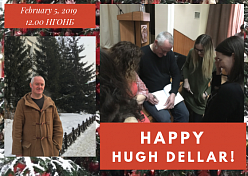В программе семинара от издательства National Geographic две лекции автора УМК Outcomes (для взрослых) и Perspectives (для старших подростков) Hugh Dellar.
Автор предоставил тезисы к обеим лекциям:
Making the leap from grammar to lexis
Grammar is obviously reassuring. As teachers, we have all invested time and effort in working out how to explain it. Yet it only takes students so far. This talk explores the fears around making the leap into the unknown and beginning to teach more lexically - and suggests eight ways of making the transition easier.
I will begin by considering the roots of the stranglehold that grammar exerts on ELT - as well as admitting to grammar's seductions - before moving on to look at the limitations and problems inherent in this way of thinking about language and, therefore, about classroom goals.
I then intend to outline steps which will ease the transition for teachers looking to move away from grammar-dominated teaching. I will consider the importance of good examples, and explore what constitutes a good example and why. I will then discuss ways of exploiting and exploring the language taught in class, the importance of - and difficulties involved in - answering students' questions and will outline some ways in which these changes lead to teacher development.
This talk is rooted in personal experience and the classroom, yet also aims to tackle theoretical issues at the heart of ELT.
Smooth Sailing Through the Sea of Words
This workshop shows how many of us have a limited grasp of vocabulary frequency because of our availability bias. It also shows how lexical sets can lead to the teaching of infrequent and unhelpful. We'll consider in more depth the importance of the examples teachers give (both orally and on the board) of new lexis that they are teaching, and look at how an awareness of our own unconscious biases can help us to make better use of dictionaries, exploit classroom texts more rigorously and result in better and more focused vocabulary teaching – and learning.




